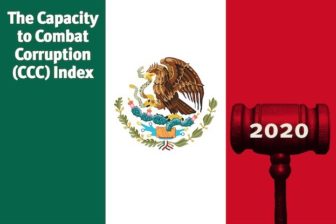The coronavirus pandemic is threatening to deal Mexico the heaviest blow in its modern economic history. With job losses from March to May triple the number of job gains during all of 2019, the gross domestic product could contract by as much as 9% this year. Paradoxically, the same affliction has offered Mexico rare potential to expand its economic role in the region as North American trade and production are increasingly brought closer to home. But unless it changes domestic policies fast, Mexico risks squandering this opportunity.
To be sure, Mexico had started to benefit from the renewed interest in “nearshoring” by U.S. businesses even before the coronavirus outbreak. Having witnessed a year of acrimonious trade rhetoric and tit-for-tat tariffs between the U.S. and China in 2019, U.S. companies have sought ways to avoid disruptions to their supply chains. As a result, Mexico’s share of U.S. imports has edged up to 15% from 13% in early 2018, while China’s has declined to 17% from 22% over the same period.
In a June survey of U.S. firms by the UBS Evidence Lab, more businesses expressed keenness to relocate their foreign operations as a result of coronavirus-related shutdowns. Of those with production in China, 76% have moved or are planning to move capacity out of the country, with one third looking to do so in the near future. Not surprisingly, the U.S. was the favored destination, chosen by 82% of surveyed firms. Canada came in second at 38%, and Japan third at 29%. Mexico ranked fourth with 23%, punching well below its potential weight.
Nearshoring is attractive to businesses because it shortens delivery times and reduces transport costs. It takes one week and costs nearly $1,800 to ship a 40-foot container to the U.S. from Mexico, compared to five weeks and around $4,300 from China, according to consulting firm Tetakawi. The cost of manufacturing labor in Mexico is also among the lowest in the world, at roughly 10% of U.S. factory wages. The work force is well-trained and vast, with two-thirds of the population being of working age, between 15 and 65 years.
Mexico has the partnerships necessary to more deeply integrate itself in the post-pandemic supply chain. On July 1, the U.S.-Mexico-Canada (USMCA) trade deal comes into force, and the country has existing free-trade agreements with dozens of other nations. It has strengthened protections of intellectual property in recent years, and runs a program that allows companies to import goods for industrial processing and subsequent export, without having to pay import tax or value-added tax. Like China, Mexico already produces goods in high-end categories such as electric machinery, so expanding capacity for comparable products need not entail substantial investments in new factories or employee retraining.
To assert its place in the post-pandemic supply chain, however, Mexico has numerous challenges to overcome. It has struggled with violence and organized crime for years, but more directly related to foreign investors is President Andrés Manuel López Obrador and his government’s rocky relationship with the private sector. The series of policy measures he has taken in the last two years has weakened the regulatory and institutional environment in the country, pushing investor confidence to its lowest level in years – a Bank of Mexico survey in May showed 92% of business enterprises considered it a bad time to invest, compared to 19% in October 2018.
In March, for example, the government ruled not to grant a water supply permit to U.S. beverage maker Constellation Brands, which had invested $900 million in a brewery in the border city of Mexicali. The decision was based on a public consultation in which fewer than 5% of eligible voters participated. Following the high-profile cancellation of a $13 billion airport project after a similar type of voting in 2018, it fueled concerns about the use of public consultations as a tool to sidestep institutional decision-making on private-sector initiatives.
More recently, in May, the Ministry of Energy overhauled the rules in the electricity market, replacing legislation that prioritized the dispatch of the least costly available energy first with one that favors fossil fuel over cheaper renewable energy generation. A federal judge blocked the new rules, but the damage to investment sentiment had been done and goes beyond the energy sector. This comes against the backdrop of the government’s suspension of an energy liberalization law that had just been implemented by the previous administration.
Mexico enjoys many desirable attributes at a time when localized production is staging a comeback. By harnessing its many advantages to capitalize on the nearshoring trend, the country could better brave the challenges to its economic recovery wrought by the COVID-19 pandemic. One thing is missing, however. A change in domestic policy direction toward closer cooperation with the private sector and clearer rules of the game are necessary for the country to take advantage of the opportunities before it.
—
Czerwonko and Soni are UBS’ Chief Investment Officers for Emerging Markets Americas and Mexico respectively.








